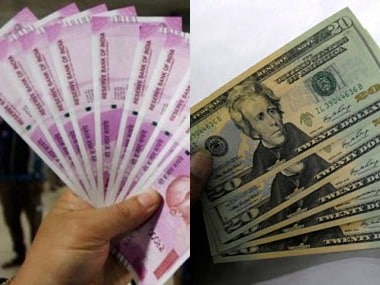How can India achieve and consistently keep a high rate of growth? A high rate would be 8 percent per year or more. Why is this important? It is because India wants to be a $5 trillion (meaning $5,000 billion) economy by 2025. To get there we have to grow at 9 percent. We are currently growing at 5 percent, according to the data from the last quarter. So it possible to grow at 9 percent? The answer is yes, and other nations have done it. [caption id=“attachment_5114261” align=“alignleft” width=“380”]  Representational image. Reuters.[/caption] Certainly, the prime minister seems to believe that it is possible. A few years ago, when I interviewed him as chief minister of Gujarat he said that he wanted that state to grow at the rate of 15 percent so that India, in turn, could grow at 10 percent. So the ambition is certainly there, and at least three large nations in modern times have done this. The first, and this may surprise some readers, is the Soviet Union. The Russia that emerged out of the second world war was extremely poor. Between 1950 and 1970, the Soviet economy grew at one of the fastest paces in the world, regularly clocking more than 10 percent a year. This was despite the fact that it did not have capitalism and economic growth was driven by the state. The USSR collapse left a Russia that was poor by western standards but still wealthy compared to the rest of the world. The second large nation to have clocked this consistently high rate is China, which began growing at over 10 percent in the early 1990s and continued for several years thereafter. Between 1965 and 1975, the US despite already having a fairly high per capita GDP compared to the rest of the world was also able to grow at an average of more than 10 percent. So the goal is achievable. The next thing to consider is what is stopping us from getting there. Here we can look at two important agents that can drive the economy. The first is the state, meaning the apparatus of the government and how it can stimulate growth through policies. We have seen an example of one such action, and that is the cut in the rate of taxes paid by India’s corporates. The stock market reacted very positively to this step by the Modi government and we shall see in the coming days if this enthusiasm continues and delivers stronger growth. The state that is efficient can devise and implement policies that it believes can boost growth. However, this can happen only when the state is efficient in doing this. One of the problems of India is that it seems to be less governable than other nations. The state writes up laws but cannot fully implement them. An example here is income tax. The rate of compliance in India is very low compared to other middle-income nations and the primary reason is the inability of the state to convince or coerce its citizenry into paying it its due. When we speak of good governance, this is what we mean. The second agent is of course society and its pool of talent. The economy can grow if there are lots of Indians saving money and investing it, and then there are individuals and corporations who are using the resources available to produce goods and services. There is a lack of good data on this but one of the obstacles we have here is middle-class conservatism. India’s middle class has a particular pathway that it sees as life goals and ambitions. This pathway has a backbone and that is a permanent, white-collar job, whether in the corporate sector or in the higher parts of the government (the Indian Administrative Service and the Indian Police Service). If there is a professional angle, there is an emphasis on medicine and engineering, but again there is a focus on being employed. We should examine the various causes of this and whether this is shifting or has remained the same. This is important because otherwise all the focus on GDP growth and all the responsibility and blame for it is shifted to the current government which is not fair. To my mind one reason for our conservatism is caste. If we look at either the largest 100 privately owned corporations in India or the new age information technology companies, they are owned and led by two or three very small communities, meaning the Agarwals and the Gujarati Baniyas. All other things being equal, they seem to be better at raising and managing capital than the rest of us. Or, and this is why I think there is an issue of cultural conservatism involved, they are more used to taking risks with capital and it is not a question merely of talent. This restriction that India has does not apply to China. The primary Chinese community ethnically is the Han. And it is this same sort of Han Chinese person we can find either in China or Hong Kong or Singapore or Malaysia or Taiwan and elsewhere. And so they have an almost unlimited resource in terms of entrepreneurial talent while ours appears to be restricted. It would be interesting if there were more analysis of what is required to make a country’s growth rate boom, and a shift in the focus away from merely the government and its policies.
The state that is efficient can devise and implement policies that it believes can boost growth.
Advertisement
End of Article
Written by Aakar Patel
Aakar Patel is a writer and columnist. He is a former newspaper editor, having worked with the Bhaskar Group and Mid Day Multimedia Ltd. see more


)

)
)
)
)
)
)
)
)



